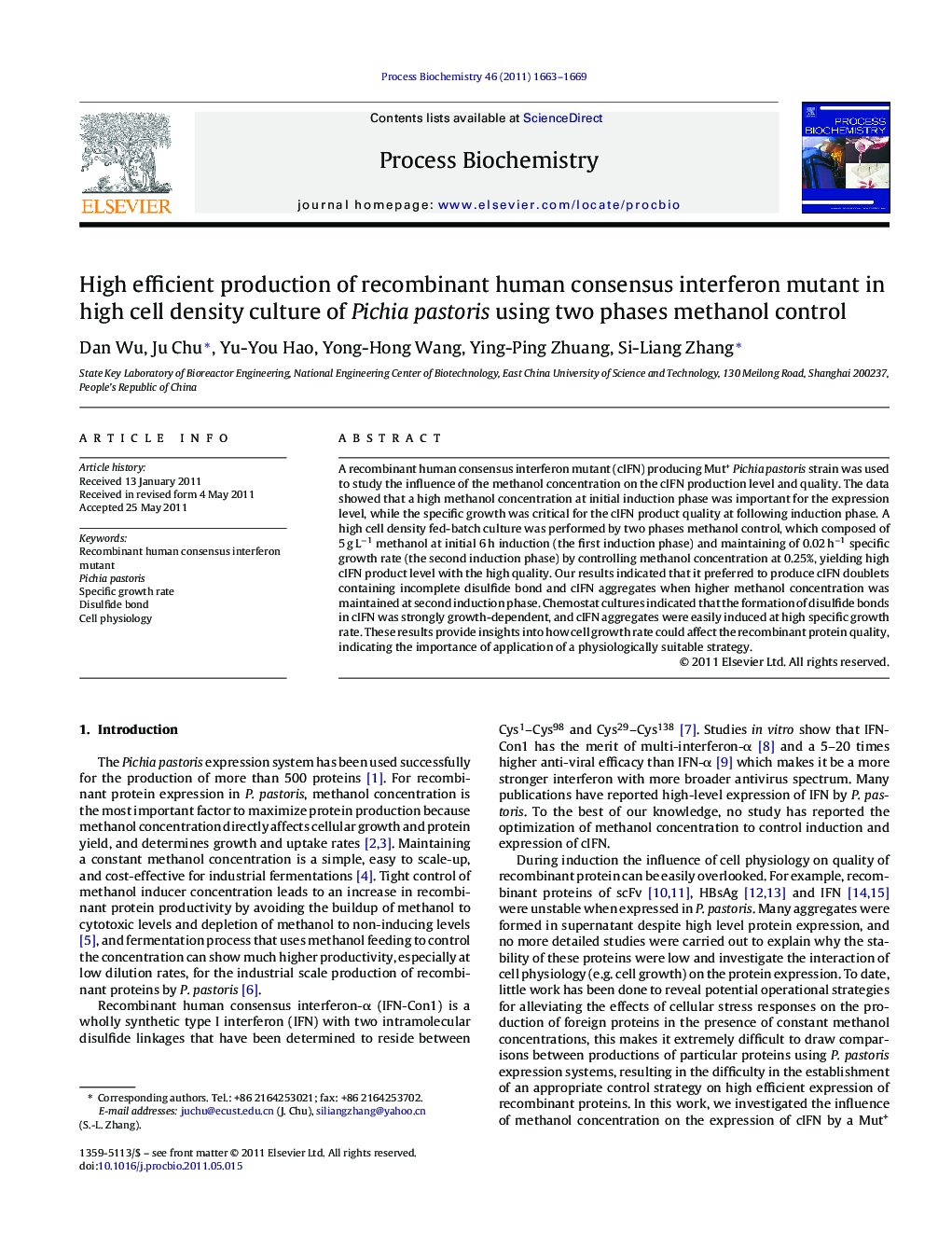| Article ID | Journal | Published Year | Pages | File Type |
|---|---|---|---|---|
| 35263 | Process Biochemistry | 2011 | 7 Pages |
A recombinant human consensus interferon mutant (cIFN) producing Mut+Pichia pastoris strain was used to study the influence of the methanol concentration on the cIFN production level and quality. The data showed that a high methanol concentration at initial induction phase was important for the expression level, while the specific growth was critical for the cIFN product quality at following induction phase. A high cell density fed-batch culture was performed by two phases methanol control, which composed of 5 g L−1 methanol at initial 6 h induction (the first induction phase) and maintaining of 0.02 h−1 specific growth rate (the second induction phase) by controlling methanol concentration at 0.25%, yielding high cIFN product level with the high quality. Our results indicated that it preferred to produce cIFN doublets containing incomplete disulfide bond and cIFN aggregates when higher methanol concentration was maintained at second induction phase. Chemostat cultures indicated that the formation of disulfide bonds in cIFN was strongly growth-dependent, and cIFN aggregates were easily induced at high specific growth rate. These results provide insights into how cell growth rate could affect the recombinant protein quality, indicating the importance of application of a physiologically suitable strategy.
